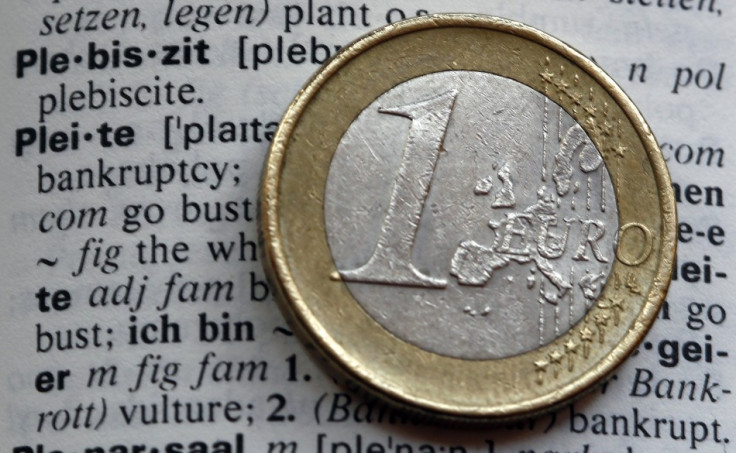Friday Wrap-Up: Greece, Europe, JP Morgan and the 'Unknown Unknowns'

"There are known knowns; there are things we know we know.
We also know there are known unknowns; that is to say, we know there are some things we do not know.
But there are also unknown unknowns - there are things we do not know we don't know."
Former US Defence Secretary Donald Rumsfeld's famous - if somewhat tongue-in-cheek - retort to the Pentagon press corps he so distained has oddly found its way into everyday language.
And it's a perfect way in which to sum-up the myriad concerns European investors are grappling with as they plough through yet another exhausting week of headlines, price swings and potential catastrophe.
What investors know is fairly straight-forward: Europe will very likely slide back into recession this year as contraction at the indebted edges of the world's second-largest economy blunts growth at the core. Britain will struggle to post meagre advancement as austerity measures (and, let's face it, Biblically bad weather) snuff confidence.
The list of what investors know they *don't* know, however, is significantly longer and far more troubling.
France has a new leader, Francois Hollande, and his first task after a formal handover next week will be a trip to Berlin to meet, for the first time, German Chancellor Angela Merkel. Hollande campaigned - and won - largely on a platform dedicated to increases in spending and vow to tear apart the newly agreed pact on budget discipline.
Merkel - who faces a mini-referendum of her own in the form of local elections in Germany's biggest state, North Rhine-Westphalia, this weekend - unsurprisingly disagrees with both strategies. However, her chief ally in the fight against European profligacy, Nicolas Sarkzoy, is making summer vacation plans and her second lieutenant, Dutch Prime Minister Mark Rutte, is making autumn election plans. If she can't find common ground with Hollande, who's victory clearly represents the rising tide of dissatisfaction around Europe to Markel's "austerity led growth" dictat, then all bets are off for the Pact.
Greece offers another excellent example of the "known unknowns" keeping investors awake on these chilly spring nights.
Hopes of an 11th-hour deal to form a government after five days of emotional negotiations faded Friday after Fortis Kouvelis, leader of the moderate Democratic Left, said his party wouldn't take part in any coalition which included either PASOK or New Democracy, the parties which finished first and third in last Sunday's election.
His decision paves the way for fresh elections, possibly as early as next month, in which the anti-bailout, anti-Europe and seemingly anti-everything Syriza looks set to win enough seats to form its own minority government. Alexis Tsipras, its leader, says he'll void previous agreements on spending and reform that were linked to the €174bn bailout.
If the worst happens, Greece will be shown the single currency exit, a topic previously dismissed as fantasy by the European Leadership that is now being openly discussed in central bank meetings according to Sweden's Per Jansson, and in the general media, where Rutte said Friday Europe would not "fall apart" if Greece left.
But even before that particular Rubicon is crossed, Greece still has to function as a going State concern. And that could be difficult.
Firstly, it may not have a Prime Minister. Lucas Papademos said Friday he won't stick around if new elections are called.
Perhaps more importantly, however, Greece needs to find €436m to pay a floating-rate note it sold back in 2002 under UK law. That bond - and several billion more - wasn't part of the €100bn PSI deal which stuffed 40 percent plus losses into the balance sheets of investors who bought bonds sold under Greek law.
If Greece pays, those investors will be furious. So will taxpayers. If Greece defaults, the headline risk will deepen investor fears that the crisis has spiralled out of control.
And that's not even the *bad* news.
JP Morgan's "egregious" "self-inflicted" "sloppy" and "sophisticated" $2bn trading loss is a timely reminder of the Rumsfeldian flourish: the unknown unknowns.
Only 3 weeks ago, CEO Jamie Dimon wagged a metaphorical finger at the media for having the temerity to suggest something might be amiss in the London outpost of its futuristic risk-management division, the chief investment office. It's a "tempest in a teapot" he scolded while his CFO sidekick, Doug Braunstein, said the bank was "very comfortable with the positions we have".
Less so now, one assumes, given the bank's admission that the loss could grow bigger. Even if it doesn't the "net" $800m loss has still cost the bank's owners more than $12bn in lost equity value.
If JP Morgan, the undisputed market leader in risk management theory, doesn't know what's going on inside its own glowing computers, then we simply can't have any confidence that the remaining risk in the $10tn market for credit derivatives has been properly neutralised.
We've seen this before - with the said irony of it being right at the cusp of the first credit crisis in 2008. Toxic mortgage bonds - not to mention soured sovereign debt - sat mysteriously inside balance sheets from Tbilisi to Tierra del Fuego. No one, including several well-known (and now either unemployed or indicted) CEOs, knew who had what and trust disappeared.
When banks don't trust each other, they don't lend to each other. And when they don't lend to each other, they stop lending to everyone else.
Bad timing for that. Standard & Poor's said Thursday that companies around the world will need to refinance at least $46tn in existing debts and new loans to finance growth over the next four years.
Good investors deal with the known knowns. Great investors master the known unknowns.
But few can make allowances for unknown unknowns.
"I don't do quagmires," Secretary Rumsfeld once said.Investors - good and great - might not have a choice.
© Copyright IBTimes 2025. All rights reserved.





















